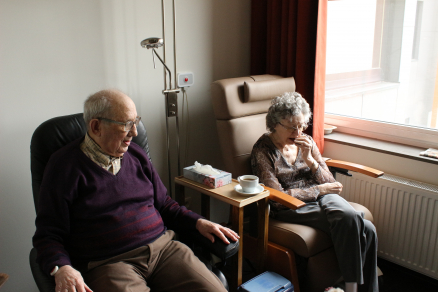The emotional journey to getting a dementia diagnosis
Watching someone close, a loved one, start to be impacted by the first signs of dementia can be a scary, worrying time. The harsh reality is that people will often refuse to acknowledge that someone they love has dementia.
“It’s ok, it’s probably just their age”...”her memory was never the best anyway, I’m just worrying too much”
Not wanting to face into reality is perfectly natural, human. No one likes to deal with bad news, we cling to a certain hope that everything will be ok.
Early diagnosis
The challenge is that early diagnosis is often essential in making sure that the person affected by dementia can lead as normal and long a life as possible. It goes without saying that if anyone is concerned that a loved one is showing symptoms of dementia, then early intervention can go a long way to making the person’s life as fulfilling and enjoyable as possible.
“We need to talk”
Even if you have decided that some action/intervention is needed, how you actually address your concerns and worries with the loved one in question, can be a daunting feeling.
What exact words do you use? How best to initiate the conversation? How will the person you are worried about react? Will they be angry?
Everyone is different, and even people you think you know, may react differently to what you expect when you first broach the subject.
Getting a diagnosis
At this point, even if you have identified worrying behaviour, have raised the subject with the person impacted, and they have agreed to get medical advice, there may still be blockers to obtain that all important diagnosis. Historically, doctors and nurses have not often had the correct training and experience in dealing with dementia. Doctors have been known to misdiagnose, or even worse, simply brush off concerns and send patients and their loved ones on their way without further tests/treatment being booked in/arranged.
Although, treatment and diagnosis is better today, there is still a certain ‘postcode lottery’ as to whether the medical practitioners will diagnose correctly and effectively.
Knowledge is key
In summary, from the first signs/symptoms of dementia in a loved one, there is a long road ahead, littered with obstacles, even just to get that important diagnosis. Hopefully material contained in these articles and on the website will help you on this journey to understanding dementia and what is available to support dementia care. The most important thing is to arm yourself with as much knowledge as possible about dementia, so you have a better idea on how to navigate yourself around everything, from the medical tests, the diseases that often underpin the dementia, to other important factors, such as how to make a home as suitable and practical as possible for someone who has dementia.
81% of people with dementia want to live in their home, but do not realise that they can, or how they can. That in itself, is one of the hundreds of reasons that your help will be invaluable and essential to those close who are facing into this, but remember, you are not alone. There are many people and many more channels of information that will help you along the way.
Looking After has created a range of articles from the emotional impact of diagnosis on the carer, financial support and what to expect after diagnosis. Please take a look at our library of articles here.
Free care finding service






